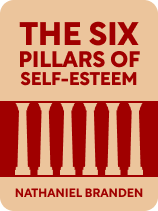

This article is an excerpt from the Shortform book guide to "The Six Pillars of Self-Esteem" by Nathaniel Branden. Shortform has the world's best summaries and analyses of books you should be reading.
Like this article? Sign up for a free trial here .
Do you suffer from low self-esteem? How does having low self-esteem affect your life outcomes?
Just as healthy self-esteem benefits you, poor self-esteem harms you. Having low self-esteem causes you to behave in ways that further erode your self-esteem, diminish your happiness, and create problems in your relationships and work. Many people don’t even realize they have low self-esteem because it can be concealed by a false sense of confidence that may ultimately cause greater harm.
Learn about the negative effects of low self-esteem.
The Effects of Low Self-Esteem
According to self-esteem expert Nathaniel Branden, poor self-esteem encourages fear—and thus obstructs your ability to raise your self-esteem. He contends that to increase your self-esteem, you must believe that you’re capable and worthy of facing reality—about yourself, others, the circumstances of your life, and the consequences of your actions. But if you suspect you’re not capable or worthy, you don’t look for answers because you fear that they might prove you right: In other words, low self-esteem makes you afraid of facing reality. So you instead find comfort in the idea that you behave how you do because it’s who you are. Your behavior aligns with this image—which, as we’ve seen, lowers your self-esteem even further, creating a vicious cycle.
For example, if you have low self-esteem, you might fear that you’re incapable of sending out a strong job application—and then grow so paralyzed by this fear that you never bother to create one. You then create an image of yourself that you’re the kind of person who can’t find a job, and then you continue behavior that prevents you from finding a job—like not filling in the application.
(Shortform note: While people with low self-esteem are afraid of their own perceptions of reality, they tend to trust external validation. One study suggests that people with low self-esteem are more receptive to positive feedback from others than from themselves because they see others as more reliable. So if you’re afraid to fill out a job application, you could ask a friend to do it with you.)
One of the negative effects of low self-esteem is struggling in a romantic relationship. When you don’t love yourself, you’re unable to give love to others. So you instead look for others to give you the approval you can’t give yourself. This isn’t really love, Branden posits, but rather a search for validation. Worse, if you do receive love, you can’t accept it. When reality clashes with your narrative that you’re unlovable, you grow anxious. But you never consider that your narrative is wrong. Instead, you resolve your anxiety by making reality match what you believe and taking self-sabotaging actions that prove you’re unlovable—like being cruel to partners who treat you well until they get fed up with your mistreatment and leave.

———End of Preview———
Like what you just read? Read the rest of the world's best book summary and analysis of Nathaniel Branden's "The Six Pillars of Self-Esteem" at Shortform .
Here's what you'll find in our full The Six Pillars of Self-Esteem summary :
- Exactly how to behave to improve your self-esteem
- Why you need to take responsibility for your life and actions
- Why so many self-esteem techniques don't work






